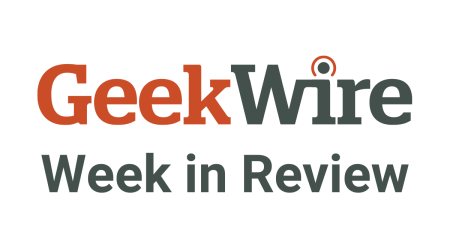Justin Farris Joins Read AI as VP of Product, Leading Tech Executives Make Strategic Career Moves
In a significant move within the Seattle tech ecosystem, Justin Farris has stepped into the role of Vice President of Product at Read AI, bringing his extensive experience from Zillow and GitLab to the growing startup. Founded in 2021, Read AI has rapidly evolved from a meeting notetaker into a comprehensive enterprise productivity platform, securing $50 million in Series B funding last year. Farris, who spent over five years in a similar position at GitLab and previously served as Director of Product Development at Zillow, draws compelling parallels between his new company and other innovative tools. “Just as GitLab is the go-to place for the entire software development process, Read AI is the go-to place where work comes together,” he explained, calling Read AI the “Cursor for productivity.” His move comes at an exciting time as the company, led by GeekWire Awards CEO of the Year David Shim, recently launched its new “Agentic Workflow Suite,” signaling continued innovation in the AI productivity space.
The tech leadership landscape continues to evolve as Lisa Gurry announces her departure from Seattle health data startup Truveta. As one of the company’s co-founders and its only female founder, Gurry helped launch the organization in 2020 after spending more than 23 years at Microsoft. During her tenure, she served in various executive roles including Chief Marketing Officer, Chief Operating Officer, and most recently, Chief Growth Officer. “I embraced my role as the only female co-founder and worked hard to create a successful company and a positive experience for all Truvetans,” Gurry reflected in her LinkedIn announcement. While she expressed excitement about her “next grand adventure,” she has yet to share specific details about her future plans. Truveta, which recently achieved unicorn status after raising $320 million, continues its mission to aggregate medical records data from partner institutions under the leadership of CEO Terry Myerson, another former Microsoft executive.
Microsoft is experiencing its own leadership transition as Hossein Nowbar, the company’s Chief Legal Officer, steps down after nearly three decades with the tech giant. Since joining Microsoft in 1997 following his graduation from the University of Washington and a four-year stint at Davis Wright Tremaine, Nowbar has played a crucial role in the company’s legal strategy. Named Chief Legal Officer in 2023, he helped navigate significant acquisitions including Nuance and Activision Blizzard King, supported numerous product launches, and introduced the Customer Copyright Commitment to advance AI implementation. While Nowbar hasn’t revealed his next career move, Microsoft has appointed Jonathan Palmer, a corporate vice president and 15-year company veteran, as its new Chief Legal Officer. In another executive shift, Marchex announced that CEO Edwin Miller is stepping down after two years leading the Seattle-based call and conversation analytics company, while implementing several other leadership changes including Troy Hartless taking on the president role in addition to his Chief Revenue Officer position.
The intersection of real estate and technology continues to see leadership movement with Bridget Frey taking on the Chief Data Officer role at Rocket following the mortgage giant’s acquisition of Seattle-based Redfin in July. Frey, who joined Redfin in 2011 and helped launch its machine learning team, will maintain her position as Chief Technology Officer at Redfin while expanding her responsibilities. “With Bridget guiding our combined data vision, we are set up to create a homeownership experience that feels genuinely connected end-to-end,” said Rocket CTO Shawn Malhotra. In related real estate tech news, Bryan Copley, founder of real estate data startup CityBldr, has joined Blue Fern Development as Chief Product Officer following Blue Fern’s acquisition of CityBldr. Copley expressed enthusiasm about “pioneering combined learning in real estate development, fusing AI insights and human judgment to unlock greater productivity,” with a focus on increasing housing development.
Amazon Web Services is strengthening its leadership team with two significant additions, according to Business Insider. David Richardson returns to AWS as Vice President of AgentCore after spending time at Stripe following his previous 16-year tenure at Amazon. Joining him is Joe Hellerstein, a professor at UC Berkeley, who comes aboard as Vice President and Distinguished Scientist. Meanwhile, Seattle’s startup ecosystem continues to attract talent across various sectors. Ty Wolfe-Jones, with previous experience at Assurance, Wrench, DoorDash, and Uber, has joined EV charging startup Juicer Energy as Head of Operations. Juicer, led by OfferUp co-founder Nick Huzar, is actively deploying its EV charging infrastructure at apartment buildings and other properties. “It is rare that you find big, real-world, ‘right now’ problems being dealt with in truly innovative ways, and with such a strong team,” Wolfe-Jones noted about his decision to join the company.
The broader Seattle tech community continues to see notable leadership transitions across multiple sectors. Sarah Strobhar has joined Seattle startup Upbound as Chief Revenue Officer after spending more than five years at AWS and serving as head of sales at Onera. Upbound, which helps enterprise customers streamline their infrastructure workflow in the cloud, raised $60 million in 2021 under the leadership of founder Bassam Tabbara. In healthcare, Jennifer Adair is departing Fred Hutch after 17 years to join UMass Chan Medical School as a professor and vice chair in their new Department of Genetic and Cellular Medicine, bringing her extensive experience in gene therapies to the East Coast institution. Additionally, Pablo Brown-Rodriguez, formerly a general manager at Amazon Health, has launched Operative Partners, a Seattle-based firm focused on acquiring and leading mid-market healthcare businesses with what he describes as “a long-term, operator-led approach” designed to “protect legacy, culture, and people” while steering healthcare organizations toward future success.















